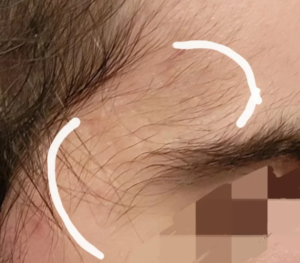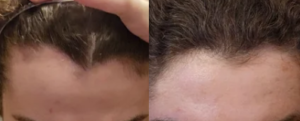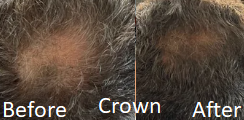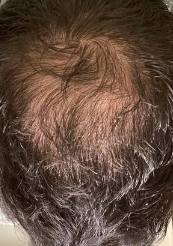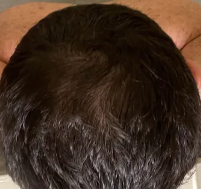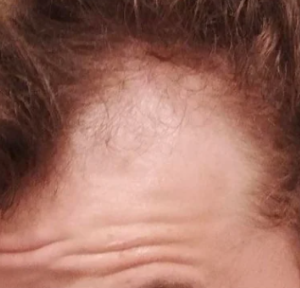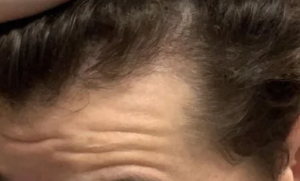Miniaturized hairs get thinner and thinner until they disappear. That is the normal course for miniaturized hairs. Drugs like finasteride, ofter reverse the miniaturization process.
Week 1 on fin. Shedding has decreased from 100-150 hairs/day to approx. 10-30 hairs/day. Scalp itch is almost entirely gone. No sides. Taken every other day. I’m a diffuse thinner, so I’m sitting at a NW1 right now with density being my primary point of concern. I started fin about two months after seeing signs of thinning. What can I expect going forward?
With the cessation of your shedding in one week, you can hope for some reversal of your miniaturization, which will be reflected in your thinning hair. Keep your fingers crossed and pray.
Should Finasteride and Dutasteride be taken on the same day? For example: should I take Dutasteride in the morning, then Finasteride at night?
It makes no sense to use both dutasteride and finasteride. Pick one or the other. Get a doctor to advise you.
Yes, I have done this many times; however, I require a good understanding of how much miniaturization is present to help my patients understand what might happen to them after a hair transplant if anything. The older the man is, the less miniaturization is usually present, but that is not an absolute rule.
Diffuse thinning is overused. Some men will develop generalized thinning in their pattern of balding. When this happens, I would expect the thinning to continue until some pattern actually appears; however, if one intercedes with drugs like finasteride, these men might reverse the thinning (Miniaturization) or freeze it where it is for some time. There is another condition called Age-Related Thinning, which is a term that reflects that all of the hair on the head will change its diameter uniformly. This commonly occurs in men and women over 50 and is more frequent as one ages; however, I have seen this in many young men who had coarse hair in their youth, then the hair caliber reduced to something less than coarse hair. These men reach out to me and think they are balding, but maybe not.
The American Indian that came over the Alaska Bridge a thousand or so years ago, have no balding. I believe this is the only large population that doesn’t see genetic balding
My question is, how many grafts can the average Caucasian person get from their donor via FUE? I don’t mean in one session; I mean in total over their lifetime. I saw different answers in different blog posts, some said at the very least 6,000, others said about 7,000, and yet others said that most people would become depleted after 5,000.
Depletion is a matter of residual hair bulk. Hair density and thickness make up hair bulk, so the coarser-haired people can afford to have more grafts removed from the donor area. For coarse-haired Caucasians with a typical Caucasian density of 2.2 hairs.FU, 6000-7000 grafts are an easy lifetime hair target in such an individual, while on the other extreme of fine hair and low density, 1000-1500 grafts might be the lifetime donor supply. Higher original density changes the equation in favor of more graft potential regarding lifetime hair. Not so simple, and that is why you need an experienced surgeon to do this for you.
No. Finasteride will eventually stabilize at some positive balance with your rate of hair loss. The original studies showed that over a 5-year period, men on finasteride lost less hair and kept more hair. I know from my practice that men on finasteride for 20 years who decided to stop the drug came crying to me to get back on it as they experienced “Catch-up hair loss”, going back in the direction of the genetic hair loss they might have had if they didn’t take it.
So somebody who continues to take finasteride and does not stop like in the example you gave, it will often continue to provide it’s benefits in retaining hair and won’t necessarily lose its effectiveness?
Correct; however, hair has its own agenda with genetic codes for Apoptosis (cell hair suicide) which is delayed by finasteride but not always a guarantee that each hair may take its own course. Generally, finasteride slows this process down for the time you take the drug. I have had patients on finasteride for 25 years. When they stopped it along the 25-year history, they always lost hair. This tells me that finasteride works if you take it for anyone losing hair.
To answer your question, I need to see photos, know your age, understand what you have been doing to grow your hair and learn about your family history.
Page 41 of 1234

